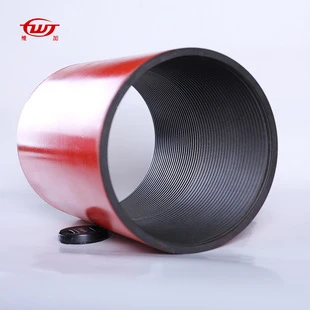- Afrikaans
- Albanian
- Amharic
- Arabic
- Armenian
- Azerbaijani
- Basque
- Belarusian
- Bengali
- Bosnian
- Bulgarian
- Catalan
- Cebuano
- Corsican
- Croatian
- Czech
- Danish
- Dutch
- English
- Esperanto
- Estonian
- Finnish
- French
- Frisian
- Galician
- Georgian
- German
- Greek
- Gujarati
- Haitian Creole
- hausa
- hawaiian
- Hebrew
- Hindi
- Miao
- Hungarian
- Icelandic
- igbo
- Indonesian
- irish
- Italian
- Japanese
- Javanese
- Kannada
- kazakh
- Khmer
- Rwandese
- Korean
- Kurdish
- Kyrgyz
- Lao
- Latin
- Latvian
- Lithuanian
- Luxembourgish
- Macedonian
- Malgashi
- Malay
- Malayalam
- Maltese
- Maori
- Marathi
- Mongolian
- Myanmar
- Nepali
- Norwegian
- Norwegian
- Occitan
- Pashto
- Persian
- Polish
- Portuguese
- Punjabi
- Romanian
- Russian
- Samoan
- Scottish Gaelic
- Serbian
- Sesotho
- Shona
- Sindhi
- Sinhala
- Slovak
- Slovenian
- Somali
- Spanish
- Sundanese
- Swahili
- Swedish
- Tagalog
- Tajik
- Tamil
- Tatar
- Telugu
- Thai
- Turkish
- Turkmen
- Ukrainian
- Urdu
- Uighur
- Uzbek
- Vietnamese
- Welsh
- Bantu
- Yiddish
- Yoruba
- Zulu
casing collar
Understanding Casing Collars in Oil and Gas Operations
In the oil and gas industry, the integrity and functionality of well construction is paramount. One of the crucial components in this process is the casing collar, which plays a significant role in ensuring the stability and reliability of the wellbore. In this article, we will delve into the importance, types, and applications of casing collars.
What is a Casing Collar?
A casing collar is a feature on the casing pipe that serves as a connection point between sections of casing and is vital for various operational aspects. Typically, casing collars are thicker than the rest of the casing, providing added strength and support. They are strategically placed at certain intervals and boast a series of notches or grooves, facilitating the seamless joining of string sections during installation.
The Significance of Casing Collars
Casing collars fulfill several essential functions in well construction
1. Structural Integrity Collars reinforce the casing string, ensuring that it can withstand the pressures and forces encountered during drilling and in the production phase. Their robust construction prevents buckling and collapse, especially in high-pressure environments.
2. Well Control The collars act as natural break points in the casing string, enabling operators to monitor and control well integrity. Any issues detected at these points can signify potential problems in the wellbore, prompting necessary interventions to avoid catastrophic failures.
3. Installation and Assembly During the casing installation process, collars provide clear indicators for depth measurements. The notches or tag points allow crew members to accurately gauge the position of the casing, ensuring that each section is properly placed as per the well design plan.
4. Facilitate Cementing Casing collars aid in the cementing process by providing a surface where cement can be contained during the displacement phase. This is crucial for forming a secure bond between the casing and the surrounding rock layers, which ultimately enhances the well's stability and integrity.
Types of Casing Collars
There are various types of casing collars, each designed for specific applications within the wellbore
casing collar

1. Casing Centralizers These collars help to position the casing in the center of the borehole, ensuring even cement distribution during the cementing process. Proper centralization is vital for effective zonal isolation.
2. Float Collars Typically used in conjunction with float shoes, these collars allow for the prevention of backflow during cement displacement. They incorporate one-way valves that enable cement to flow out while preventing mud from entering.
3. Production Collars These are specifically designed for production casing strings. They incorporate features that facilitate the attachment of production equipment and enable efficient hydrocarbon extraction.
4. Testing Collars These collars are equipped with ports for conducting pressure tests within the casing string, allowing operators to verify the integrity and strength of the casing under operational conditions.
Applications of Casing Collars
Casing collars are integral to various operations in the oil and gas sector
- Exploration Drilling At the exploration stage, collars ensure that the wellbore can withstand the complexities of drilling through differing geological formations.
- Production Wells In production wells, they play a critical role in maintaining separation between formations, preventing cross-flow and ensuring optimal hydrocarbon recovery.
- Workover Operations During workover activities, casing collars provide essential support and facilitate various interventions, such as repairs and enhancements to existing wells.
Conclusion
Casing collars are a fundamental component in the engineering of oil and gas wells, supporting everything from installation to production. Their role in ensuring the structural integrity and functionality of the well cannot be overstated. As technology advances, the design and application of casing collars will continue to evolve, playing a vital role in safe and efficient resource extraction. Understanding their significance helps clarify their indispensable nature in the complex world of oil and gas operations.
-
Tubing Pup Joints: Essential Components for Oil and Gas OperationsNewsJul.10,2025
-
Pup Joints: Essential Components for Reliable Drilling OperationsNewsJul.10,2025
-
Pipe Couplings: Connecting Your World EfficientlyNewsJul.10,2025
-
Mastering Oilfield Operations with Quality Tubing and CasingNewsJul.10,2025
-
High-Quality Casing Couplings for Every NeedNewsJul.10,2025
-
Boost Your Drilling Efficiency with Premium Crossover Tools & Seating NipplesNewsJul.10,2025







